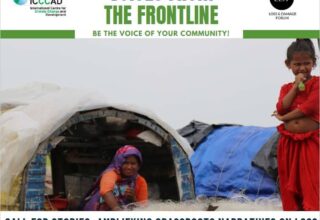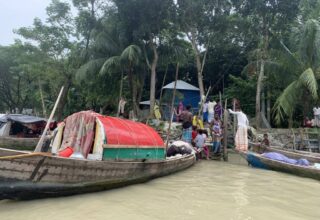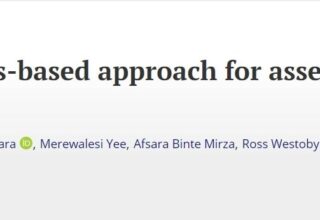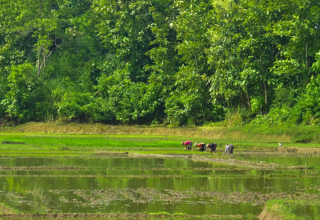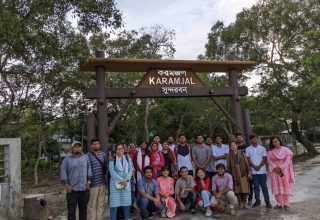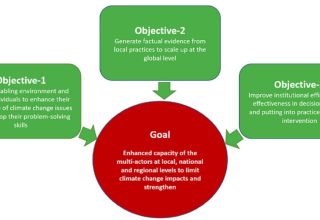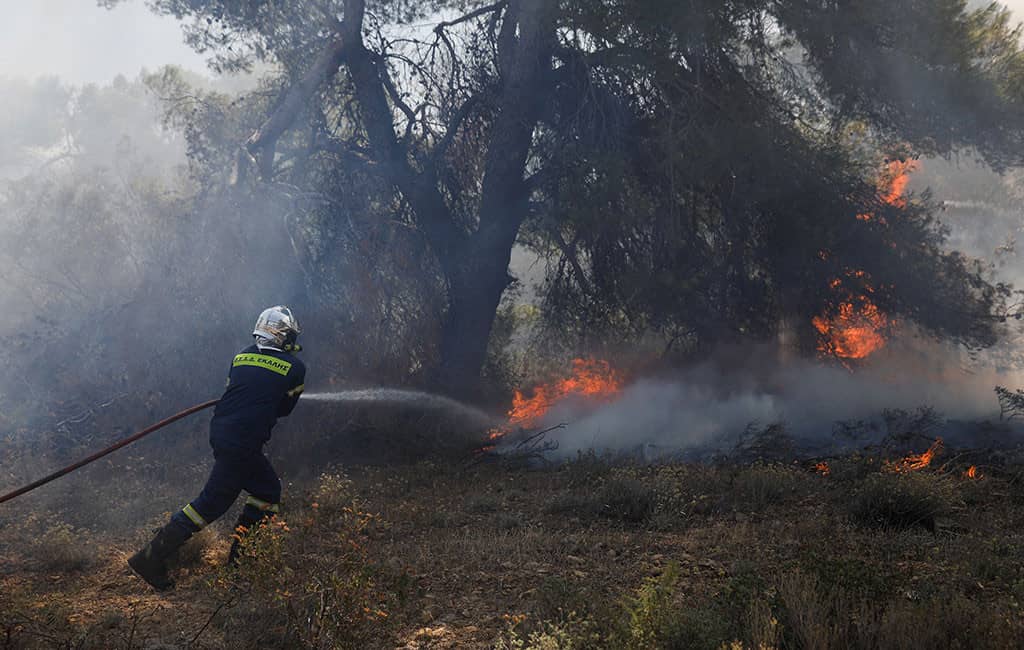
Photo Credit: Sindra Sharma
As the third pillar of action under the Paris Agreement, efforts to address Loss and Damage have been primarily framed as a politically divisive yet technically focused domain in the climate regime. In reality, it is the very essence of climate justice based on the economic and non-economic damages disproportionately suffered by communities, particularly in poor and vulnerable countries and Small Island States — communities who did the least to create the climate crisis in the first place.
As the global carbon budget shrinks and the planet continues to warm, the 2022 IPCC Impacts, Adaptation and Vulnerability report points out that both developed and developing countries will experience significant climate-induced devastation in the near future. However, the report also shows that poorer nations, made more vulnerable by geopolitics and their economic condition, have a significantly reduced ability to withstand these devastating impacts. Addressing Loss & Damage is, at its heart, an equity and justice issue.
The weight of historical responsibility for climate change lingers over developed countries. Despite this, they still refuse finance to address Loss & Damage and, when they do, it is via the inadequate market-based instruments such as insurance, which can further deepen indebtedness of the most vulnerable communities and countries. We see, instead, a preference by developed countries to conflate the quite different ideas of Loss & Damage with Adaptation. Ironically, the latter’s finance is chronically insufficient and delayed, driving up the cost of Loss & Damage even further.
Over the years, civil society organizations have been working diligently to put Loss & Damage in the forefront and centre of the climate agenda. As one of the oldest and largest global networks focused on fighting the climate emergency, for years, CAN has worked through the Adaptation and Loss & Damage working group with members and allies to ensure that Loss & Damage is viewed within the lens of rights, justice, and equity. CAN allies and members such as La Ruta Del Clima, CIEL, ActionAid, and SEI have applied equity and rights-based approaches to demonstrate the wide reaching impacts of climate damages (including on race, gender, class, age, and economic well-being) and built the case for the moral obligation for new and additional finance to address Loss & Damage. Notably in 2019, CAN laid out a set of key asks for Parties to address at COP25 in Madrid which included a “financing facility” under the Warsaw International Mechanism for Loss and Damage to deliver new and additional finance to address this core issue.
Through 2020 and 2021, with this vast background of work and with Covid-19 further exposing significant global inequality and wealthy nations again lagging behind on their climate commitments, CAN as a network came together to declare that delivering on Loss and Damage finance would be the litmus test for success of COP26.
Although the UK Presidency refused to put Loss & Damage finance high on the COP26 agenda, relegating it to a side event and some informal discussions, through a sustained campaign from CAN and other partners it was forced into the mainstream narrative and became the issue of COP26.
From political advocacy work, to media outreach, social media campaigns and the World We Want campaign, CAN and partners fore-fronted voices of the impacted communities, and galvanizced support for a finance facility for Loss & Damage. A narrative grounded in justice and equity was delivered to the world. This resulted in Loss & Damage trending on social media platforms and was picked up by prominent news outlets and ultimately seen as the make or break deal for COP26 “Pay Up for Loss and Damage” became the rallying cry for justice through the streets of Glasgow, and found new support among local activists who called on rich polluting countries to pay up for climate damages.
Within the negotiations developed countries blocked a proposal, first put forward by Fiji and AOSIS, for COP26 to have an outcome on Loss & Damage finance. With pressure mounting on the outside, ultimately the biggest negotiation block of G77 + China supported the proposal to establish the “Glasgow Loss and Damage Facility” as a standalone facility under the financial mechanism of the convention.
Between these two large country blocs, nearly 5 billion people of the developing world demanded support for the unavoidable climate impacts that they are least resourced to cope with.
Political momentum was further galvanized by the government of the host of COP26, Scotland, committing two million pounds towards addressing Loss & Damage.
This was a remarkable display of moral clarity in stark contrast to other developed countries such as the USA, the EU, UK, Australia who consistently blocked discussions on such support.
Whilst COP26 failed to deliver the Facility and settled on the Glasgow Dialogue as a compromise, it has changed the landscape of the climate agenda. Our political leaders can no longer ignore that we live in the era of Loss & Damage and extreme climate impacts. Together with efforts on mitigation, support for those facing unavoidable climate impacts cannot be reduced to a footnote.
The scale of mobilization and the push for finance for Loss & Damage from civil society at COP26 was a resounding success and has opened a clear path to the delivery of finance after 30 long years when the call was first raised by the Alliance of Small Island States (AOSIS) in 1991.
CAN, along with our civil society allies, will continue to advocate for establishing the Loss and Damage Finance Facility at COP27 to demand justice for the communities facing the climate crisis.
Originally this article was published on August 4, 2022 at Dhaka Tribune.
Sindra Sharma is working as a senior program officer at Climate Action Network International. Dharini Parthasarathy is working as a senior communication officer at Climate Action Network International. Harjeet Singh is working as a Senior Adviser: Climate Impacts at Climate Action Network International.

